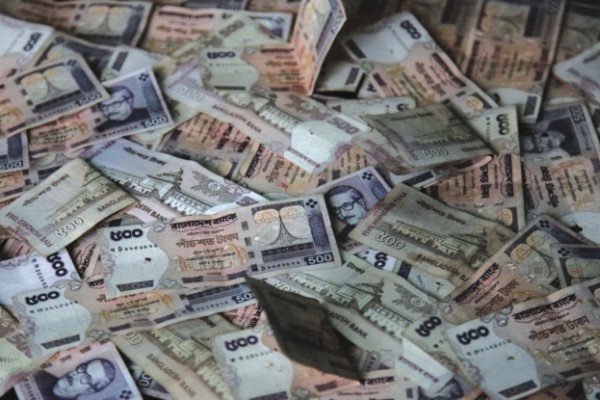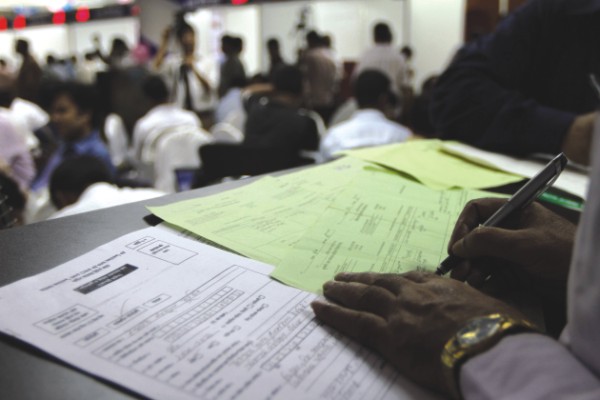
Inside
|
The Labyrinth of Budgets and Finances
Our financing plans must be geared towards improving the common person's lot, says ZIAUDDIN CHOUDHURY.
Labyrinths are not something that one consciously steps into; one gets caught in these somewhat unknowingly. Budgets are such labyrinths that are not intended that way, but they become so when you try to explain these to the people affected by it. Every home needs a budget (of what to spend and where the money comes from), and so does a nation. But woe becomes the head of the household who cannot please anyone in his house with his spending plan and least of all try to get the money everyone in his or her family wants to spend. Now jump the screen to the national budget that has millions of lives hooked to it.
Woe betide becomes the person who finds him in this labyrinth of unfulfilled desires of many and wrath of many others, and yes, like the poor head of the household he has to find the money he has planned to spend.
On June 8 this year, Bangladesh Finance Minister presented the 40th annual budget of the country for a staggering Tk.1.6 trillion crores, about $22 billion in current exchange rates. The budget brought to my mind the very humble but historic first budget of our newly liberated country presented by Tajuddin Ahmed in 1972. The budget of a paltry Tk. 786 crores (about $684 million in then exchange terms) pales into insignificance when compared with this gargantuan growth. But the budget in 1972 was drawn in a country devastated by a nine-month long war, with millions of people still looking for food and shelter, with roads, bridges and our buildings in a state of utter shambles. It was for a population of under 80 million. We have doubled our population since then; our revenues have increased, and so have our expenditures. We are coping with an ever-expanding requirement to meet both basic needs of our people, and to invest to grow the economy. This is a tall order for any Finance Minister, and no budgets however well intentioned can meet the expectations of all.

Photo: PRITO REZA
How have we done in all these 40 years since the first meagre resource and spending plan of 1972? The budgets have grown steadily over time, each budget has promised growth and lofty revenue goals, and expenditures have accelerated both on running the business and investing for growth. Have these budgets brought enough changes in the life of an ordinary citizen, made their life a little more prosperous than before? Before we get lost in the negatives let us take some stock of what has happened in the last four decades on the positive.
No economic miracle has happened yet, we are nowhere near any of our Asian neighbours; but there are a few achievements that our budgetary spending has helped us with in the last four decades. Economically we have maintained a steady growth of near six percent annually for last several years, managed inflation, and we have reduced income poverty gap. Socially we have seen increase in life expectancy, reduction in child birth and growth in primary school enrolment.
The problem is most of these achievements are intangible to the common person. Despite our impressive growth in per capita terms and equally notable improvement in social indicators, we have large level of illiteracy, high incidence of absolute poverty, poor resource mobilisation capabilities, and poor capacity to withstand chronic natural disasters. Literacy rates for male workers 15 years and older still stands at 52%, and those for female workers at 32%. Forty percent of our population is still below the poverty line, with close to 25% living in absolute poverty. Even with substantial nominal growth in tax revenue in the last decades, it still remains at around 10% of GDP compared with nearly 20% for India. To add to our woes, natural disasters continue to plague us from time to time undermining our modest economic growth and poverty reduction attempts. Climate change will likely aggravate this further in the future.
To navigate the labyrinths of our national budget and funding requirement to meet all these challenges, we not only need a mastermind but also capacity building that would cater to these needs. I will leave the discussion on how to better manage our budgets and finances to the experts. For now I want address the issues that seem to paramount to the common person, which never seem to be resolved no matter how high the spending is, or how lofty the goals of development are.

Photo: SK ENAMUL HAQ
To me the common person's lot cannot improve until we bring down the incidence of poverty significantly, if not to eradicate it completely in the next decade. The ordinary citizen's lot will not improve if we cannot bring down drastically the level of illiteracy, improve public health and sanitation and provide protection from natural disasters. To do that we need plans in several fronts: removal of illiteracy, human resource development, large doses of investment in infrastructure and a viable disaster recovery plan that can both anticipate and make provisions for quick responses to natural disasters. And to do all this we need to mobilise resources first and foremost of which would be to ensure that we can collect what we plan for. This is where we need to gear up our financing plans and lay down the wherewithal to plug the holes in our revenue collection. These holes are our archaic tax collection system, a non-resilient tax structure and incidence of tax avoidance and tax evasion.
This year's development budget of a staggering Tk. 50.6 crore is predicated on 60% funding from domestic resources. This domestic funding would come from our expected revenue earnings, which have been set at a record high level. Nearly a third of our tax revenues will come from indirect tax such as VAT, while income tax (corporate and personal) will account for about 20% or so. In developed countries, income tax accounts for the bulk of total government revenues.
How can we sustain a hugely expanding development need on such a low tax base even though the total revenue is growing? Is it conceivable to keep on funding our development expenditures simply by raising the indirect taxes only which affect the masses in general?
Taxation is integral to sustainable growth and poverty reduction. Tax receipts provide developing countries with a stable and predictable fiscal environment to promote growth and to finance their social and public investment needs. Combined with economic growth, efficient tax systems will progressively reduce aid dependency. More generally, taxation plays a supportive role in improving governance by promoting the accountability of government to citizens. The key challenge is to turn principles into action, to ensure taxation delivers on its promise as a core source of development finance.
The major reason why income tax in Bangladesh has stagnated at this low level is that our tax structure has not expanded over time with growth in personal income. The source and the amount of tax collected every year remains almost the same. The government is also not having any specific information on how many people there are with high income. Since the government has not been able to establish effective monitoring or information system, tax evasion has become easy and commonplace.
As our leaders promise a better and economically stronger Bangladesh that can uplift its millions from poverty, we need to focus on ways to find resources domestically to fund our development goals. Along with a viable plan to expand the tax base, we need to straighten our collection mechanism and better manage the resources that we dedicate to these efforts. Our external development partners have suggested several ways that we can do this. Notable among these are:
(a) Improvement and modernisation of our revenue administration, and expansion tax base;
(b) Automation of tax collection;
(c) Improvement of human resources management; and
(d) Development of a culture of tax payer services.
The last item, probably the least known and least valued concept in Bangladesh, would require building a relationship with tax payers with regular consultation and providing information on policy changes and other services that government can provide to the tax payers.
Our goals are lofty and intentions honest. But the mechanism and the environment where we work will not lead us to these goals or fulfilment of our intentions unless we reform the faltering system. A grand budget by itself will not lead us to eradication of poverty or meeting the basic needs of the common man. More hard work and political will are needed to bring about the institutional and policy reforms that will allow the realisation of these goals. I sincerely hope that this will happen.
Ziauddin Choudhury works for an international organisation in USA.